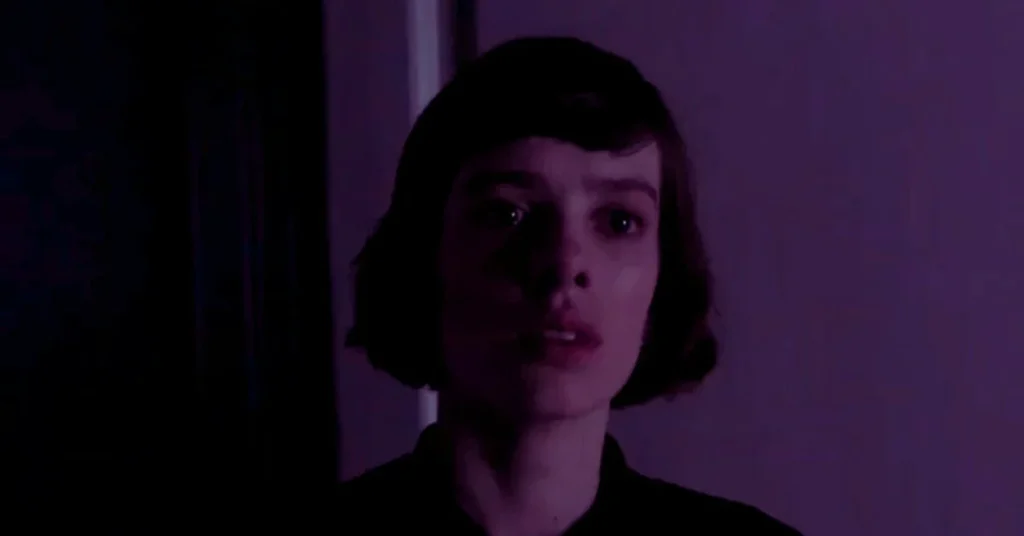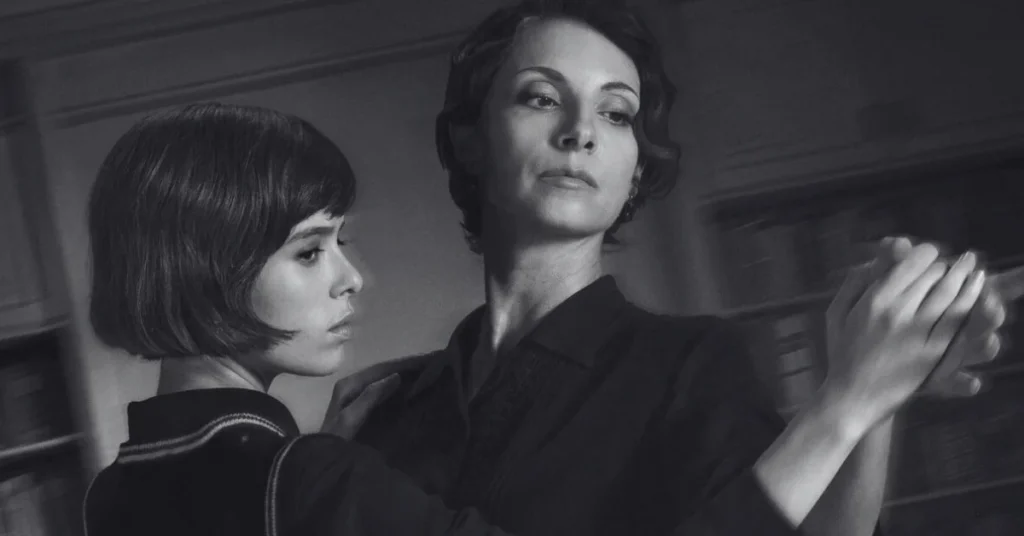Summary
Not only is The Red Virgin meticulously directed, but it is the hallmark of a must-see historical drama, with a firm screenplay and impeccable performances.
Before receiving a global release, The Red Virgin premiered at the 72nd San Sebastián International Film Festival in September 2024, before earning itself a theatrical release in Spain. And I am not surprised at all. The movie holds impeccable performances, especially by its two female leads, Najwa Nimri (Holy Family, Insiders, Money Heist) and Alba Planas, who certainly workshopped their characters.
Bringing a strange true story and set in 1931 in Madrid, Spain, The Red Virgin blesses itself in the backdrop of the Second Spanish Republic. Aurora (historically known as Aurora Rodríguez Carballeira) conceives her daughter Hildegart (historically known as Hildegart Rodríguez Carballeira). During a strange narration phase, Aurora hails Hildegart as a science experiment after conception, a woman that will lead the women of the future. It’s an eerily delivered narration, and audiences unaware of the severity of this period of history will be ultimately surprised by where the story goes.
The plot analyzes a stressful, suppressed relationship between a mother and her daughter. Aurora molded Hildegart, a child prodigy that became a pundit on female sexuality and revolution, shifting the political spectrum of the role of women in society with left-leaning and socialist inclinations.
In The Red Virgin, Aurora succeeds in creating a woman deemed for the future, but with that comes challenges and a horrifying story of grooming and control.
Typically, the changing point is puberty. While Aurora can control molding her daughter with education and social constructs of society, she did not anticipate the shift in personality that comes with hormonal changes.
The movie flagrantly makes the angle that men are the suppressors of society, but at the center is a 16-year-old teenage girl navigating new feelings for the first time amidst a plethora of fame due to her well-celebrated ideas.
Without irony, the turning point of the story is when Hildegart meets Abel Vilella (played by Patrick Criado), a Social Activist eager for the child prodigy to join the socialist movement. Yes, a man begins the downfall of Aurora’s creation.
From here, The Red Virgin becomes a staggering period where Aurora takes control and ironically becomes the one thing she claims to hate—a fascist. Well, that was my perception, anyway. The film does little to portray the character with sympathy or give her an illusion of motherhood.
The Spanish movie is ideologically poised in the most toxic sense. It exposes how, when ideology takes hold, it can damage the fabric of society and lean to behaviors and actions that are equally damaging to what the ideology fights for. It’s eerily representative of the modern day, with our education systems on the firing line and parents becoming less accountable for their children’s beliefs in the family home.
The Red Virgin hosts a range of brilliant performances that do not wane throughout. The mother-and-daughter relationship is especially compelling. The tension is at breaking point throughout, especially when Hildegart’s worldview starts to take shape. Secrets between the pair are almost unspoken, leading to a terrifying third act that will send chills down your spine.

Alba Planas as Hildegart in ‘The Red Virgin’ (Prime Video)
Hildegart’s transformation is especially appealing in the second act. It has all the hallmarks of a teenage rebellion. Her growth empowers resistance, which leads to unfortunate consequences, providing the young girl with an inner conflict.
Many scenes are uncomfortable: Aurora puts her child prodigy in the trenches, constantly typing away, writing her latest essays and books to be published to the world, but having financial control for herself. It reminds me in some ways of Black Swan or Whiplash, where the young people are put through the paces exponentially, but in an abusive sense, bringing a sobering but thought-provoking movie experience (I don’t think we can ever forget Miles Teller’s bleeding for the drums).
The Red Virgin shows opportunities extinguished, and the usual joys of life are taken away. The movie is not for the lighthearted in many ways, as far more uncomfortable truths overlay the usual themes you’d expect. Yes, the autonomy of women is significant. Yes, there’s a message of equality in society.
But all this feels secondary in The Red Virgin, and it’s almost like director Paula Ortiz (Teresa) decided to focus on the symptoms caused by such an ideological grip rather than the ideology itself. This may frustrate progressives who would prefer the movie to be more political, but unfortunately, the mother of this film villanizes the movement based on her own outlook on the world.
Put plainly, The Red Virgin is an astonishing work that’s not only credited to the cast but is held up by a firm screenplay and meticulous direction. It’s no wonder the reception in Spain has been unanimous in praise (Fotogramas rated the film 5 out of 5 stars) and is up for many accolades in the 30th Forqué Awards and the 12th Feroz Awards. This film will surpass all expectations if you are a fan of historical dramas, psychological thrillers, or socially charged narratives.
Read More: The Red Virgin Ending Explained




